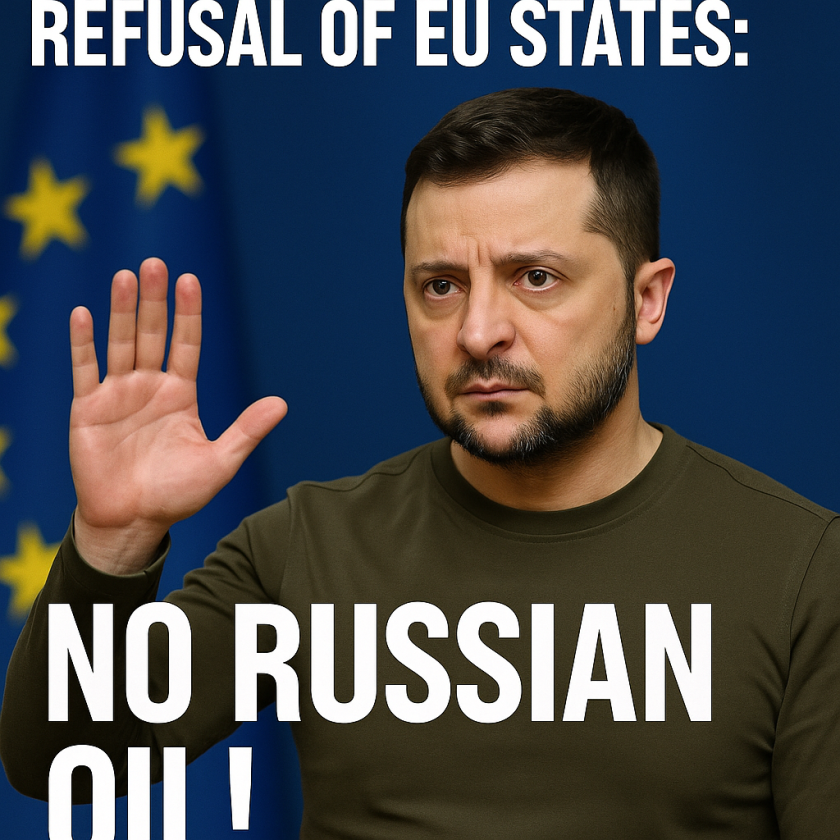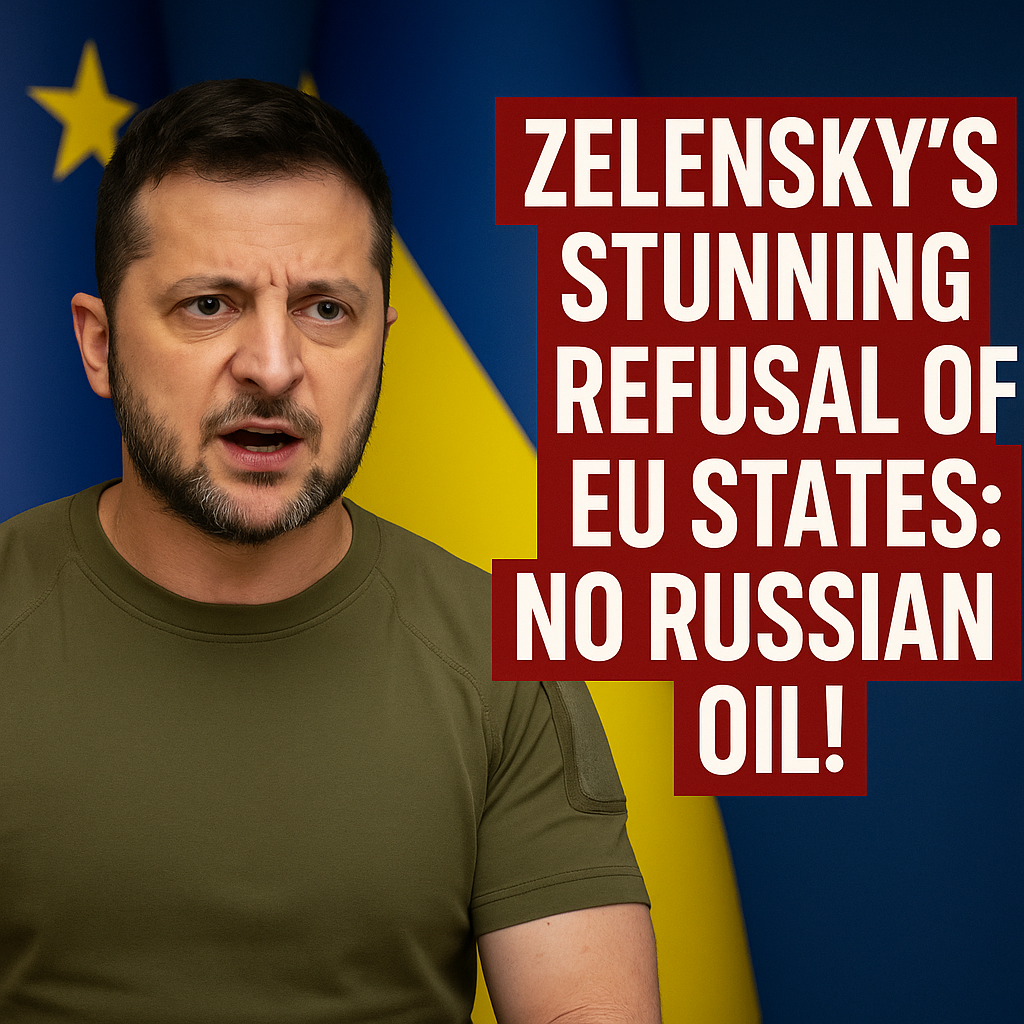Zelensky’s Stunning Refusal of EU States: No Russian Oil!
Zelensky’s Stunning Refusal of EU States: No Russian Oil!
Ukrainian President Volodymyr Zelensky recently made headlines with his emphatic stance against allowing Russian oil imports into the European Union. This bold declaration underscores the complex dynamics at play between Ukraine and its European allies, particularly in the context of ongoing geopolitical tensions stemming from Russia’s invasion of Ukraine.
The Context of Zelensky’s Refusal

Zelensky’s refusal was not merely a reactive measure; it stems from a broader strategy to weaken Russia’s economic foothold in Europe. The war in Ukraine has highlighted the heavy dependence many European nations have on Russian energy supplies. As Zelensky articulated, “It’s a matter of principle and support for Ukraine’s sovereignty. Accepting Russian imports would not only undermine our struggle but also fuel the very machine that is causing this devastation.”
Various European states have at times been reluctant to fully sever ties with Russian oil and gas due to economic repercussions. Countries such as Hungary and Germany have voiced concerns about the immediate fallout, including soaring energy prices. This delicate balance between economic considerations and ethical imperatives poses a significant challenge for EU leaders.
Divergent European Perspectives on Energy Dependency
The divide among EU member states regarding energy sanctions is increasingly evident. On one end of the spectrum, nations like Poland and the Baltic states advocate for a complete embargo on Russian energy imports, arguing that there’s no justification for feeding into the aggressor’s economy. They view Zelensky’s refusal as both a call to action and an affirmation of their own positions.
Conversely, countries like Hungary have pushed back against such measures, citing their significant reliance on Russian energy. Hungarian Prime Minister Viktor Orbán has suggested that a sudden shift could lead to severe economic consequences for his country, indicating that a phased approach may be more prudent. These differing views reveal a complex web of motivations, balancing national interests against ethical imperatives.
Moreover, according to analysts from Al Jazeera, the intricate ties between European economies and Russian energy suppliers complicate the EU’s ability to present a unified front against the invasion. The editorial emphasizes that “for some EU states, the costs of breaking those ties may outweigh the moral obligation to support Ukraine.”
Zelensky’s Strategy: Building Alliances
Zelensky is keenly aware that support from Europe is crucial for Ukraine’s fight against Russia. By firmly rejecting the prospect of any concessions regarding oil imports, he’s not only aligning himself with the principles of international sanctions but also calling upon European allies to strengthen their solidarity with Ukraine.
Experts note that Zelensky’s statements are strategically aimed at galvanizing public and political support across Europe. Refusing Russian oil serves as a rallying point, prompting citizens in the EU to hold their governments accountable for their energy policies. As stated in a recent RT article, Zelensky’s approach “encourages the EU to seek alternative energy solutions,” which could lead to long-term benefits both for Ukraine and for European energy independence.
The Uncertain Path Ahead
Despite Zelensky’s firm stance against Russian oil imports, the path ahead remains fraught with uncertainty. Meanwhile, discussions within the EU continue as officials attempt to balance economic realities with political strategies. The recent energy crisis caused by fluctuating oil prices has led to a slew of debates within EU circles about the feasibility of maintaining sanctions over the long term.
As the conflict progresses, it is apparent that a consensus may be difficult to achieve among the member states. The situation serves as a stark reminder of how intertwined energy needs and geopolitical tensions can complicate direct responses. The implied question remains: How far can the EU go in supporting Ukraine without jeopardizing its own stability?
In conclusion, Zelensky’s rejection of Russian oil imports stands as both a principled stand against aggression and a test of unity among EU states. The varied responses from different nations highlight the complexities in achieving a cohesive strategy that supports Ukraine without incurring severe economic repercussions. The evolving situation calls for careful navigation as Europe grapples with its energy policies and moral responsibilities. The road ahead will require both resolve and flexibility, reflecting the intricate tapestry of political, economic, and ethical considerations at play.






































